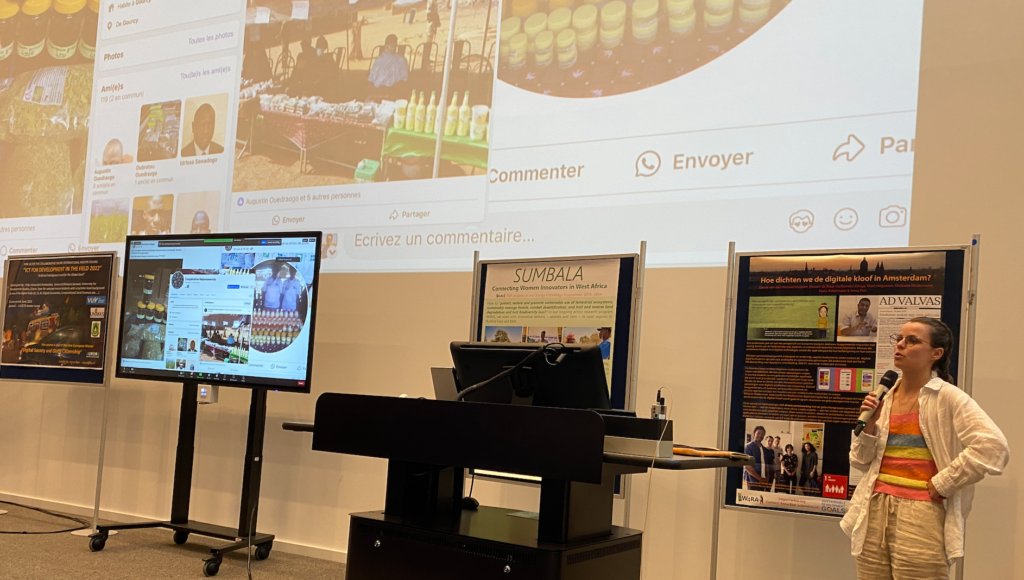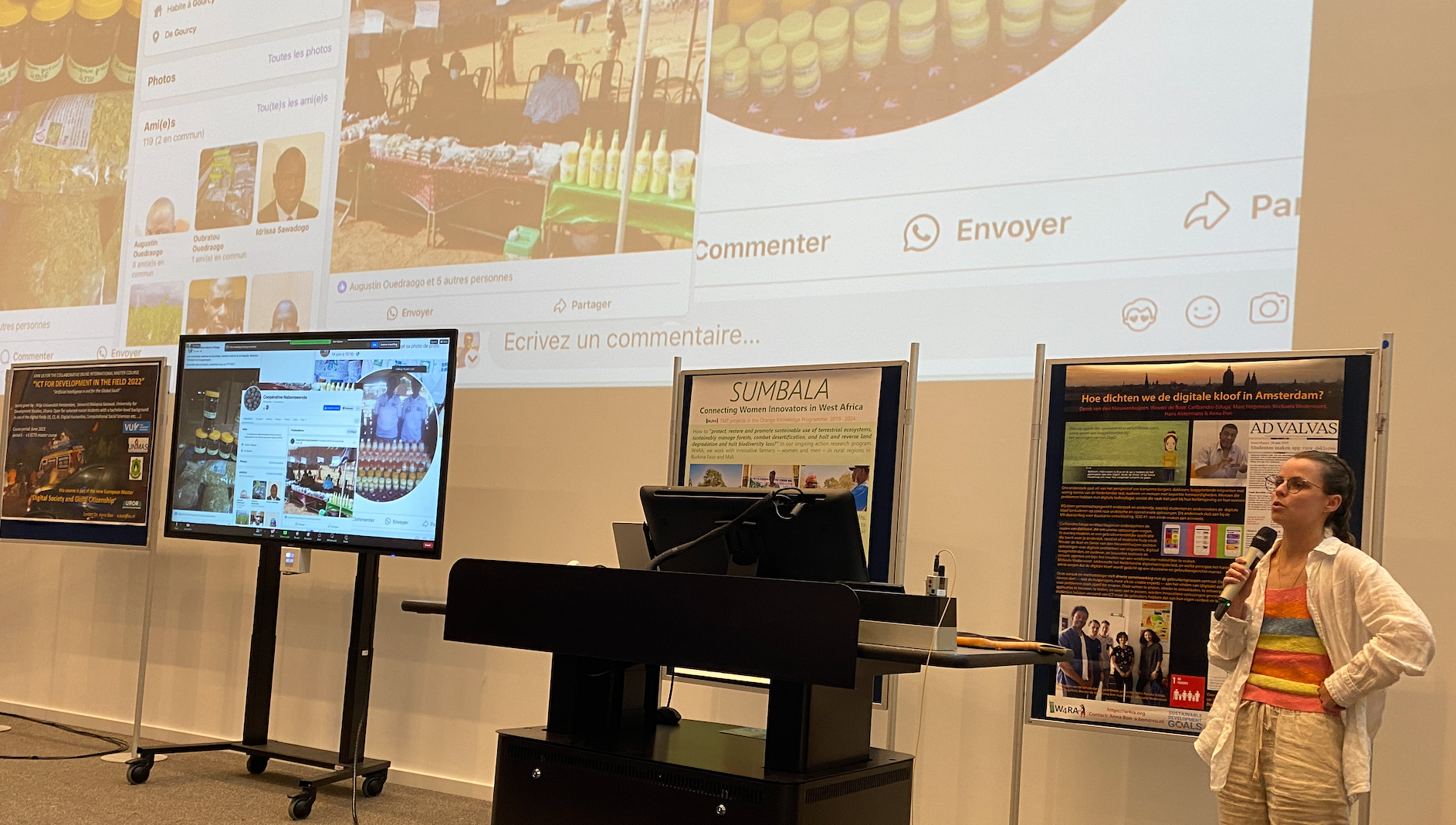A Digital Society, Social Innovation and Global Citizenship master student project.
Marie-Lou David’s master research project in ICT4D, contributes, by placing human-centered design at the forefront, to the broader discourse on technology’s role in rural development.
Marie-Lou used two real-world projects as case studies: one in Burkina Faso which aims to empower Burkinabé women through entrepreneurship for sustainable forest products, and a related initiative in Mali focusing on cultivation and commercialization of artemisia for malaria treatment by small holder farmers women and youth entrepreneurs.
The present master research builds further on the foundations of voice-based technologies introduced by a EU-funded (FP7) research & innovation project VOICES, that was carried out in West Africa in 2011-2013. That research aimed at expanding the Web beyond the Internet, by enabling local users to use their simple coice-based (GSM) phones, local community radio and innovative digital services in local languages to improve web-based communication in remote rural regions.
The current project examines the relevance of these earlier approaches and investigates how they can be adapted to today’s technological environment, that includes e.g. smartphones and AI.
Marie-Lou designed and built an interactive, voice-based system in Mooré, a local African language which is widely spoken in Burkina Faso. With Artificial Intelligence and text-to-speech technology, she designed and built a voice-based social media app, tailored to the needs of users — in case women entrepreneurs — with low literacy and limited digital skills. The app facilitates voice-based stock management and marketing of products, in combination with local radio broadcasting. The final aim is to provide a communication platform for users in rural regions of West Africa.
Western African countries such as Mali and Burkina Faso have seen a recent increase in Internet and smartphone use, however the digital gap is ever present between rural and urban areas. Many farmers in remote communities do not yet have access to new digital technologies, often hampered by low literacy and digital literacy skills.

Master thesis presentation by Marie-Lou David at the Perspectives on ICT4D Symposium 2024
Apart from technical design and deployment, Marie-Lou’s research also offers new insight in how to create adaptable, user-friendly solutions that can bridge the technological gap and improve livelihoods in resource-constrained environments.
A collaborative, adaptive, iterative approach was used, dubbed ICT4D 3.0. to build a voice based system that addresses the unique challenges of this context: language, low literacy, needs to share information among women farmers in cooperatives etc.
By placing human-centered design at the forefront, this research contributes to the broader discourse on technology’s role in rural development to reduce the technological gap and improve livelihoods in resource-constrained environments. Through its stakeholder groups in food-insecure countries, this research supports indirectly SDG-2: zero hunger.
This master research was carried out and supervised at Vrije Universiteit Amsterdam with support from the SMEs: Babafla, AKMC and SBC4D. It was co-funded by the EU and the Netherlands, Ministry of Foreign Affairs, see also https://soumbala.w4ra.org/une-appli-qui-parle-votre-langue-locale-africaine/
